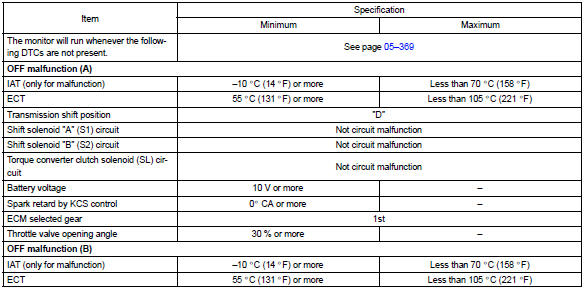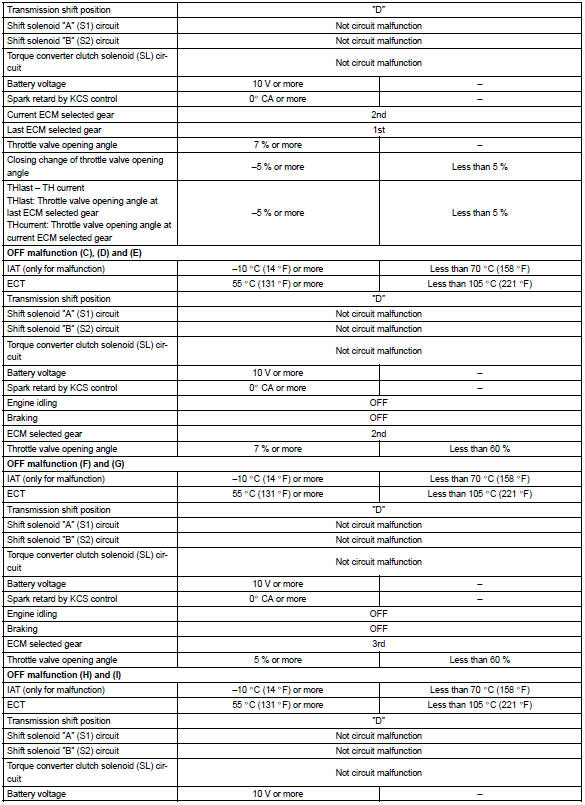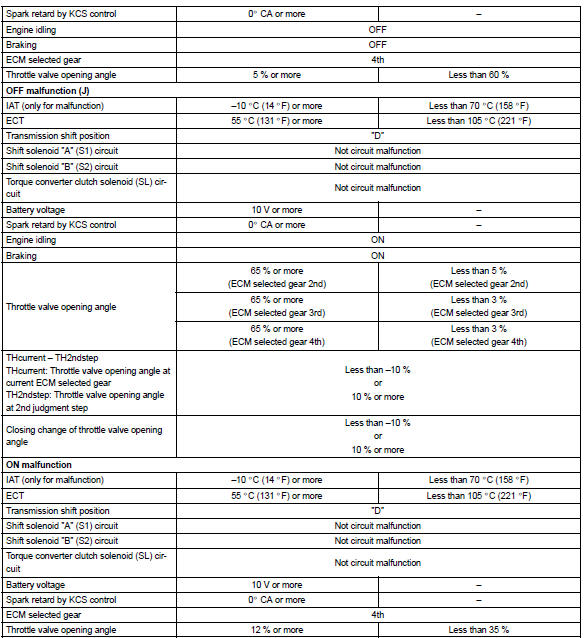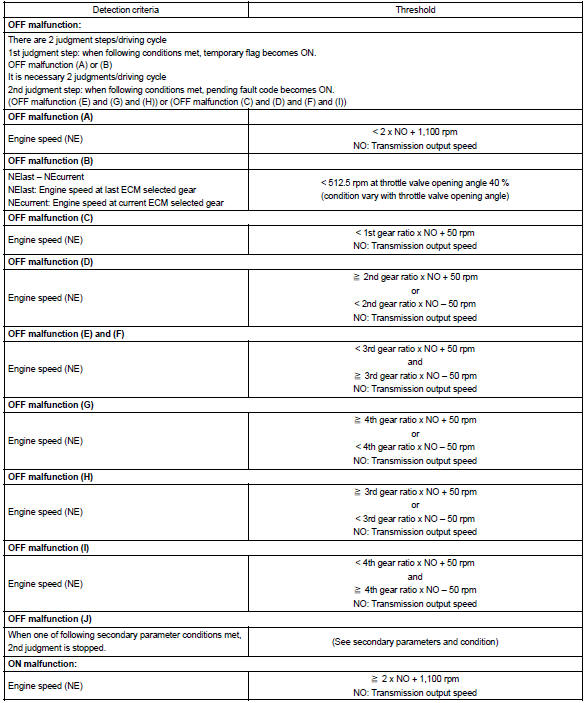Toyota Corolla (E120) 2002–2008 Repair Manual / Diagnostics / Electronic controlled automatic transaxle / Shift solenoid ”a” performance
(shift solenoid valve s1)
Toyota Corolla (E120): Shift solenoid ”a” performance (shift solenoid valve s1)
Dtc p0751 shift solenoid ”a” performance (shift solenoid valve s1)
System description
The ecm uses signals from the vehicle speed sensor and crankshaft position sensor to detect the actual gear position (1st, 2nd, 3rd or o/d gear).
Then the ecm compares the actual gear with the shift schedule in the ecm memory to detect the mechanical trouble of the shift solenoid valves, the valve body or automatic transaxle (clutch, brake or gear etc.).

Monitor description
The ecm commands gear shifts by turning the shift solenoid valves ”on/off”. According to the input shaft revolution, intermediate (counter) shaft revolution and output shaft revolution, the ecm detects the actual gear position (1st, 2nd, 3rd or o/d gear position). When the gear position commanded by the ecm and the actual gear position are not same, the ecm illuminates the mil.
Monitor strategy

Typical enabling conditions



Typical malfunction thresholds

Other materials:
Exterior
Doors
Locking/unlocking
Opening/closing the side windows
Locking/unlocking by using the mechanical key*1
Warning messages
Trunk
Opening from inside
Opening from outside
Warning messages
Outside rear view mirrors
Adjusting the mirror angle
Folding the mirrors
Defogging the mirrors*2
...
Replacement
Hint:
installation is in the reverse order of the removal. But the installation is
indicated only when it has a point.
1. Remove radiator grille sub–assy
Remove the 2 bolts and clip.
using a screwdriver, remove the radiator grille.
Hint:
tape the screwdriver tip before use. ...
Replacement
1. Remove instrument panel sub–assy lower
2. Remove clutch pedal spring
3. Remove clutch master cylinder push rod clevis w/hole pin
Remove the clip and hole pin.
4. Remove clutch pedal support sub–assy
W/ cruise control:
disconnect the clutch switch assy connector.
&nbs ...


